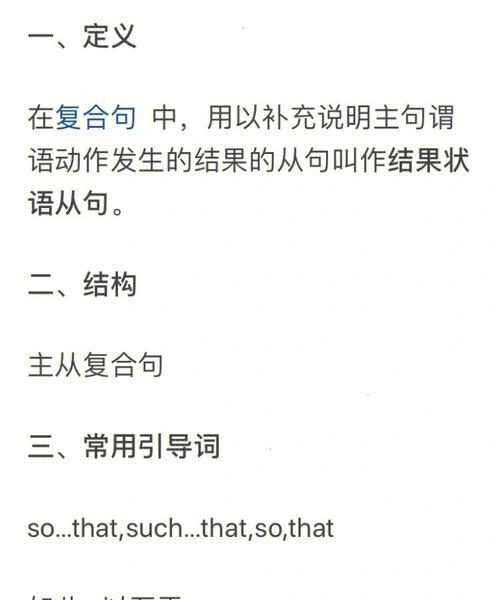结果状语从句在英语语法中用于表达动作或事件的结果,常用的引导词包括"So"、"Therefore"、"Thus"、"Consequently"和"As a result"。这些连词各有不同的用途和含义,能够帮助我们清晰、准确地表达意思。

1. So
"So"是最常用的结果状语从句引导词之一。它表示一个事件的结果与先前的情况相同或相似。例如:
- I forgot my keys, so I had to go back home.
- She studied hard, so she got an A on the test.
2. Therefore
"Therefore"表示一个事件的结果是由于先前的情况而发生的。它通常用于正式场合。例如:
- The experiment was successful, therefore we can conclude that our hypothesis was correct.
- She has a lot of experience, therefore she is well-suited for the job.
3. Thus
"Thus"表示一个事件的结果是由于先前的情况而发生的。它通常用于较正式的场合。例如:
- He didn't study for the exam, thus he failed.
- The company has a strict budget, thus they cannot afford to hire more employees.
4. Consequently
"Consequently"表示一个事件的结果是由于先前的情况而发生的,这种结果通常是负面的。例如:
- He didn't follow the instructions, consequently he caused a serious accident.
- The company was poorly managed, consequently it went bankrupt.
5. As a result
"As a result"表示一个事件的结果是由于先前的情况而发生的。它通常用于口语和书面语。例如:
- He spent all his money, as a result he had to borrow from his friend.
- The storm damaged the crops, as a result there was a shortage of food.

